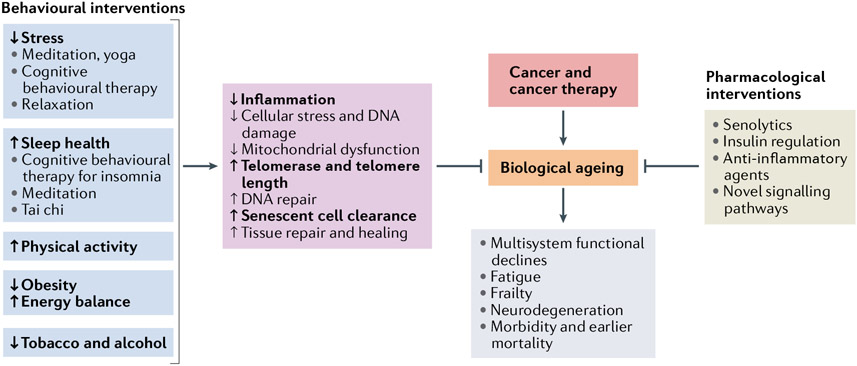Fig. 3 ∣. Interventions proposed to inhibit the effects of cancer treatments on biological ageing and to modify long-term physical and cognitive health.
Patient-specific biobehavioral factors can influence biological ageing processes and are potential targets for interventions designed to slow or reverse the effects of cancer and its treatments on these outcomes. A variety of interventions targeting these host factors may act directly on biological ageing pathways such as inflammation, cellular stress, mitochondrial function, the telomere maintenance system, repair pathways and cellular senescence. As cancer and cancer therapies are thought to act as accelerators of biological ageing, these modifiable factors might also be potential targets for interventions designed to slow or reverse the effects of cancer and its treatments. Biobehavioural interventions targeting stress, sleep health, physical activity, obesity and substance use have been demonstrated to have beneficial effects on inflammation and some ageing biomarkers (highlighted with bold font), including empirical support for cognitive behavioural therapy, mind–body interventions, and exercise, dietary and substance use interventions. All of these interventions could then have implications for survivorship risk, including the risks of functional decline, fatigue, frailty, neurodegeneration, and early morbidities and mortality. Alternatively, pharmacological agents, such as senolytics or anti-inflammatory agents, might be able to directly reverse or modify the effects of biological ageing.

